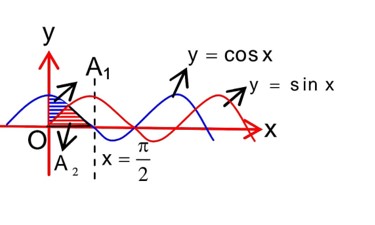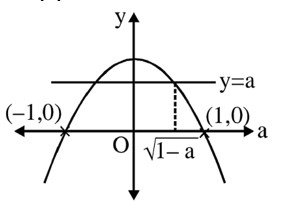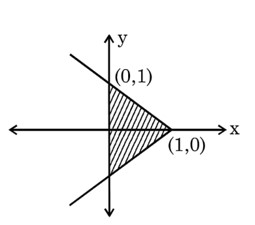If the area of the bounded region R = {(x,y) : max{0, logₑx} ≤ y ≤ 2ˣ, 1/2 ≤ x ≤ 2} is, α(logₑ2)⁻¹ + β(logₑ2) + γ, then the value of (α + β - 2γ)² is equal to:
If the area of the bounded region R = {(x,y) : max{0, logₑx} ≤ y ≤ 2ˣ, 1/2 ≤ x ≤ 2} is, α(logₑ2)⁻¹ + β(logₑ2) + γ, then the value of (α + β - 2γ)² is equal to:
Option 1 - <p>4</p>
Option 2 - <p>8</p>
Option 3 - <p>2</p>
Option 4 - <p>1</p>
5 Views|Posted 5 months ago
Asked by Shiksha User
1 Answer
V
Answered by
5 months ago
Correct Option - 1
Detailed Solution:
Area = ∫? ² (2? - logx)dx = [2? /ln2 - (xlnx-x)]? ²
= (4/ln2 - (2ln2-2) - (2/ln2 - (0-1) = 2/ln2 - 2ln2 + 1.
α=2, β=-2, γ=1.
(α+β-2γ)² = (2-2-2)² = 4.
Similar Questions for you
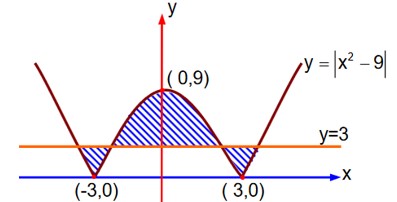
Required area = A
Note : No option in the question paper is correct.
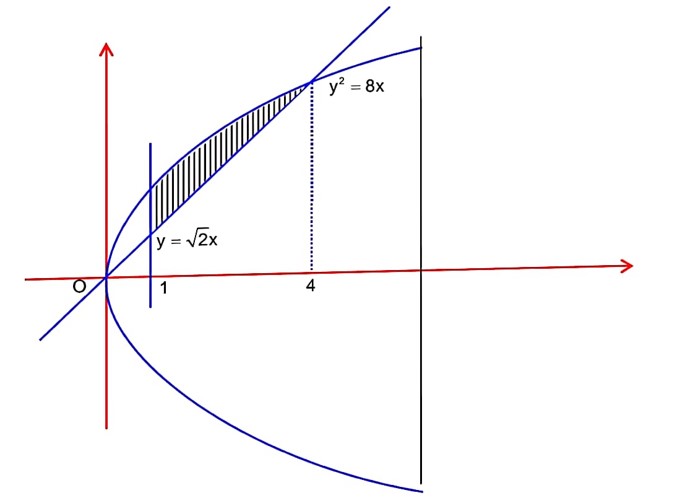
Required area = dx
Taking an Exam? Selecting a College?
Get authentic answers from experts, students and alumni that you won't find anywhere else.
On Shiksha, get access to
66K
Colleges
|
1.2K
Exams
|
6.9L
Reviews
|
1.8M
Answers
Learn more about...

Maths Application of Integrals 2025
View Exam DetailsMost viewed information
SummaryDidn't find the answer you were looking for?
Search from Shiksha's 1 lakh+ Topics
or
Ask Current Students, Alumni & our Experts
Have a question related to your career & education?
or
See what others like you are asking & answering

